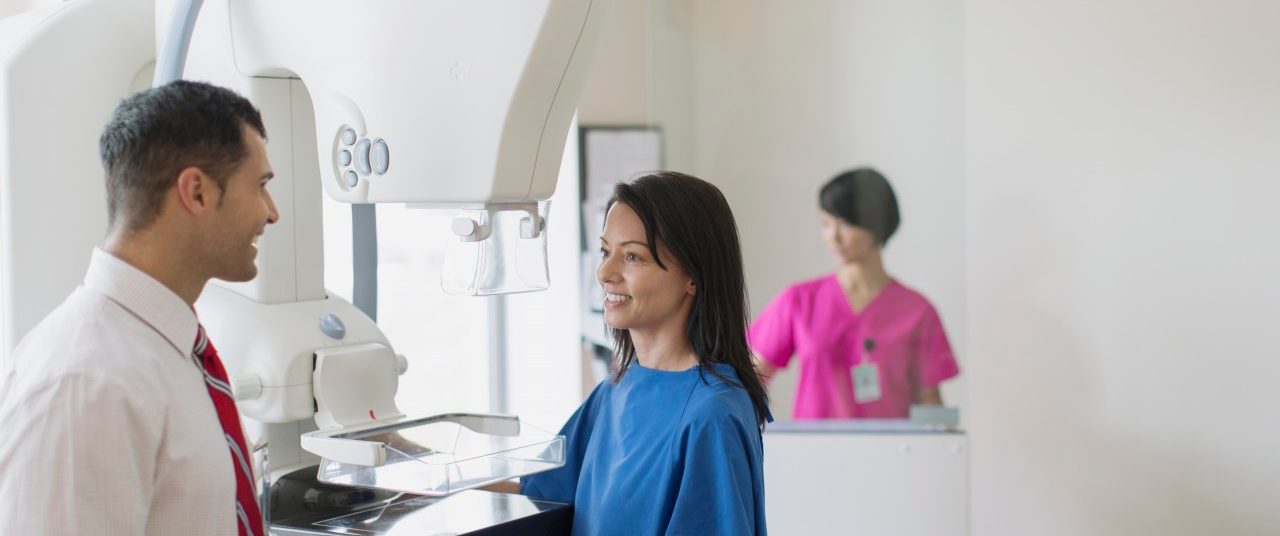Cancer Screening Guidelines

Early detection improves your chances of beating cancer.
Screening increases the early chances of detecting – and beating – many cancers when they are most curable. Cancer screenings are preventive, and in many cases covered by most health insurance. Here are the major cancer screening guidelines, when you should have them, and why.
Breast Cancer
Low-risk women – those without a known genetic or family history of breast cancer – should start having annual mammograms at age 40, according to the American Cancer Society (ACS). Women ages 50 to 74 should be screened every 2 years. Some women – because of family history or genetic factors – should also have a breast MRI.
While increasing age is the most important risk factor for breast cancer in most women, there is no recommendation for mammograms in women 75 and older. However, most women should start conducting breast self-exams in their 20s. Women in their 20s and 30s should have their breasts examined by their doctor every 3 years.
Know your risks for breast cancer ahead of time.
Cervical Cancer
Women ages 21 to 29 should have a Pap test every 3 years.
Women ages 30 to 65 should have a Pap test and a test for human papillomavirus – HPV causes almost cervical cancers – every 5 years ACS. The U.S. Preventive Services Task Force (USPSTF), however, recommends this group of women have a Pap test every 3 years.
Women over 65 who had normal results from three consecutive regular screenings should not be tested. Women under the age of 21 do not need testing either.
Know your risks for cervical cancer ahead of time.
Colon (Colorectal) Cancer
Adults ages 50 to 75 with no unusual risk factors have several options for screening schedules. You can have flexible sigmoidoscopy every 5 years, colonoscopy every 10 years, double-contrast barium enema every 5 years, or virtual colonoscopy every 5 years.
These same adults should also have fecal occult blood testing every year.
If you have a parent, sibling, or child who was diagnosed with colorectal cancer, your risk is two to four times higher than the risk for someone without that history, the American Cancer Society reports. Your doctor may recommend that you have a colonoscopy starting at age 40, or 10 years before the age that if an immediate family member was diagnosed with cancer. You might need more frequent screening and genetic counselling.
People ages 76 to 85 do not need regular screening, and men and women older than 85 do not need any screening. Know your risks for colon cancer ahead of time.
Lung Cancer
The American Cancer Society does not recommend tests to screen for lung cancer in people who are at average risk. High-risk people – smokers or former smokers – however, should be screened between the ages of 55 and 74, according to the ACS. The USPSTF recommends high-risk adults be screened until they are 80.
Prostate Cancer
Research has not proven that the potential benefits of testing for prostate cancer outweigh the harms of testing and treatment. You should talk to your doctor about what’s right for you, starting at age 50. If you are African American, or your father or brother had prostate cancer before age 65, you should talk to your doctor at age 45. Men who decide to be tested for prostate cancer should have a PSA blood test every 2 to 4 years.
Other Cancer Screenings
People 20 and older should have periodic checkups or counseling for the following cancers: thyroid, oral, lymph nodes, testes, ovaries, and skin. Talk to your doctor about when it’s best to have these tests.
Updated:
July 27, 2021
Reviewed By:
Christopher Nystuen, MD, MBA